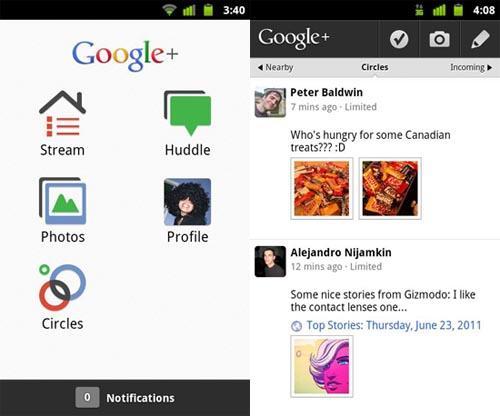
Right after Apple’s announcement regarding iOS 5’s iMessage, the iOS-exclusive messaging feature, there was plenty of talk about how Research In Motion had lost a huge ace in their pocket. RIM’s exclusive BlackBerry Messenger was a feature that had been copied, but never implemented into the core of a competitor’s mobile OS. Some thought it was RIM’s final nail, some didn’t think so. We’ve talked about exclusive features in devices in the past, and how a single feature can be the tipping point to a consumer, and mean the difference between purchasing one device versus another. Google’s mobile operating system, Android, is a feature-rich platform that hundreds of thousands of people have fallen in love with since its release. But, could Android be even more popular if Google reserved some features specifically for Android, and only Android?
Obviously, there are some features inherently Android, and nothing can change that. While Apple copied Android’s notification shade for the future release of iOS 5, Android still has its notification bar, where the most recent notifications are always available to see. But, this isn’t a major selling point in my opinion. Sure, the notification bar is great, and the different notification shades from HTC, Samsung and LG make the customization features more than obvious. But, it isn’t going to make or break a sale, at least not to the masses.
Google Talk is, though. After all, Google already has a messaging service that’s geared specifically for Google/Android users. The moment you turn on an Android device, you’ll see that Google Talk is already preinstalled on your device, giving you a quick option thanks to your Gmail address to talk to other Android users. Sure, Google Talk doesn’t offer up the same level of encryption that iMessage or BBM does, nor does it pony up delivered or read receipts, but I don’t think it would be impossible for Google engineers to implement these features into Talk sometime down the line. If they can, then features that are so popular in BBM and iMessage would no longer be super “exclusive,” and it would be more of a reason for people to stick with Android.
And then there’s Google+. This new project from Google is the company’s attempt to bringing all of the greatest features of your favorite social networks, and leveraging them on Google’s sturdy base. You don’t just get Google+ -- you get Gmail, Google Calendar and Reader, and every other one of Google’s sites and applications, all tucked inside the new Google+ aesthetic approach and Spartan-like implementation. The result is an always-present notification system of what’s going on in your + page, but more to the point, it meant the creation of the Google+ application for Android. The general consensus for this application is that it’s great, gets the job done, and offers up plenty of features that using Google+ on the go isn’t a pain in the you know what.
Whether or not Google+ succeeds in what Google is intending will have to wait and be seen, but it’s obviously doing well for itself right now. People were clamoring for invites, and social networks were buzzing about it. And the fact that there’s a Google+ application for Android, and only Android at this point is huge. If you’ve got another platform then you have to use the Google+ mobile site, which is fine for what it is, but it isn’t the best way to get done what you want or need to get done. An application is the best way to do it, and Android has an exclusive hold on that right now. Unfortunately, though, it won’t last long. There’s an iOS-based application in the works, and that means that exclusivity is already heading out the window.
To be clear, it’s great that Google is making sure that people have access to Google+. Additionally, there’s no doubt that Google wants people on iOS (and other platforms, of course) to be able to access Google+, because that means people are using their services, which means they’re getting money. I just think there’s some room here for Google to leverage that “exclusive” word for some of their more popular features and applications, and make it so that if you want Google+ (or Google Talk), then you need to have an Android phone.
Do you think Google should make some of their more popular features Android-only? More to the point, do you think we’ll ever see a time where Google actually makes features like Google Talk or Google+ specifically available for Android? Let me know in the comments below.